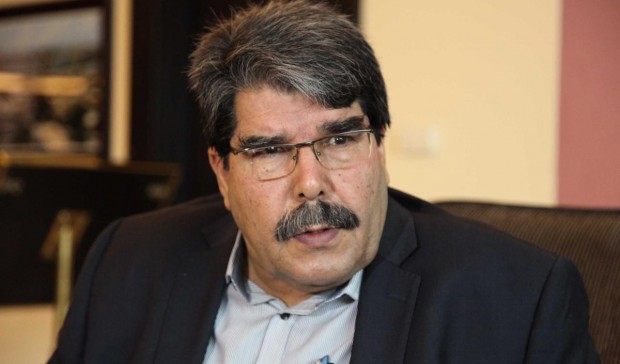By Andrea Shalal and Leo Rinke
BERLIN (Reuters) — Germany on March 6 said it would review Turkey’s request for the extradition of a Syrian Kurdish leader on constitutional grounds as the two NATO allies continued to try rebuild frayed ties.

German Foreign Minister Sigmar Gabriel assured Turkish Foreign Minister Mevlut Cavusoglu, who is visiting Berlin to attend the Berlin ITB, the world’s largest tourism fair, that both the request to extradite Saleh Muslim and Turkey’s push for relaxed travel guidance would be carefully examined.
Muslim, who formerly headed the PYD, Syria’s main Kurdish party, spoke at a demonstration in Berlin on Saturday after being detained and then released in Prague.
“We have in fact received a verbal note from the Turkish foreign ministry, and we will send this request, as always, to the (German) justice ministry and they will examine it on constitutional grounds,” Gabriel told reporters at a joint news conference with Cavusoglu before their meeting.
Turkey says Muslim is linked to two bombings in Ankara and has vowed to pursue him “wherever he goes.” On Monday Ankara said it had asked Germany for Muslim’s extradition.








